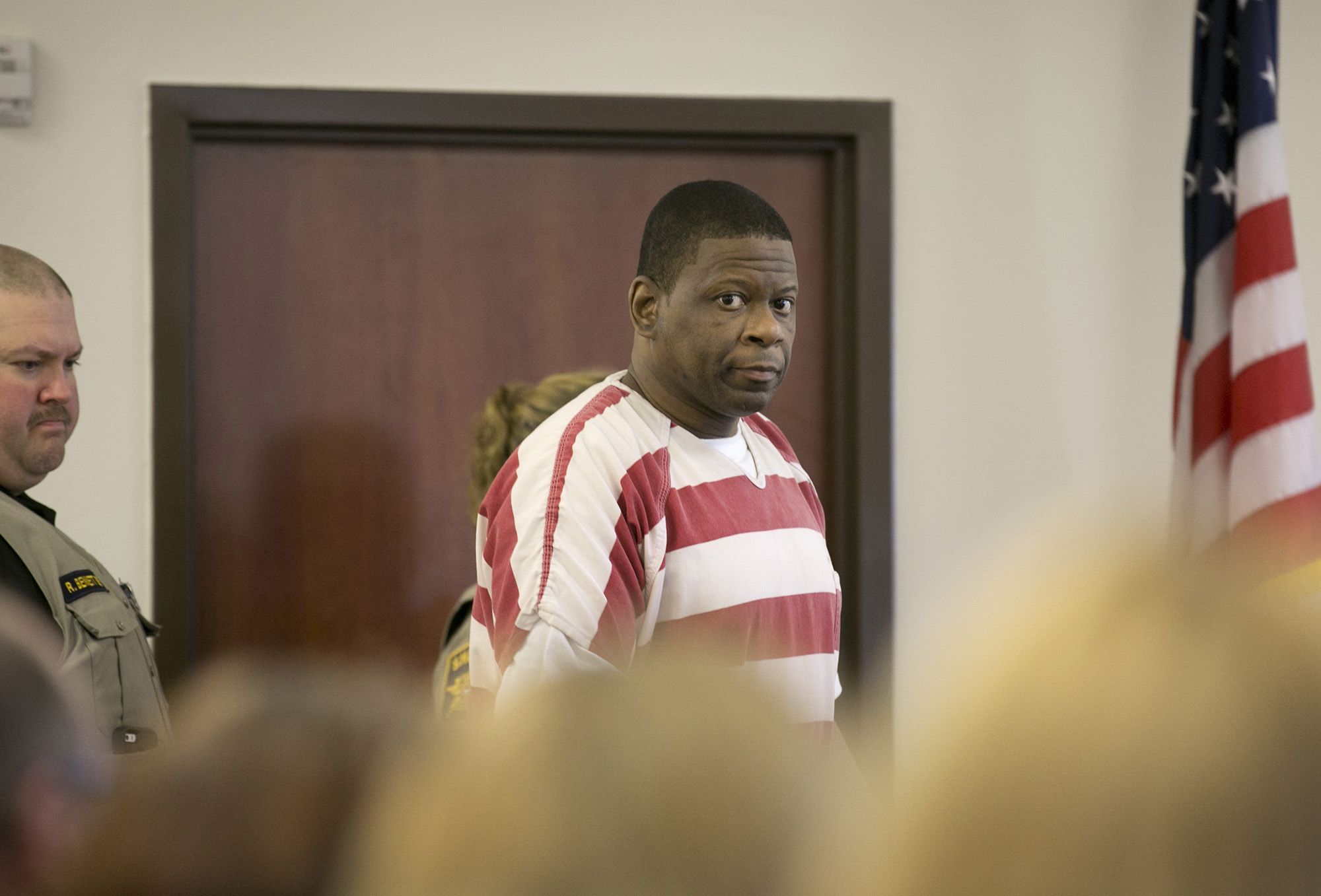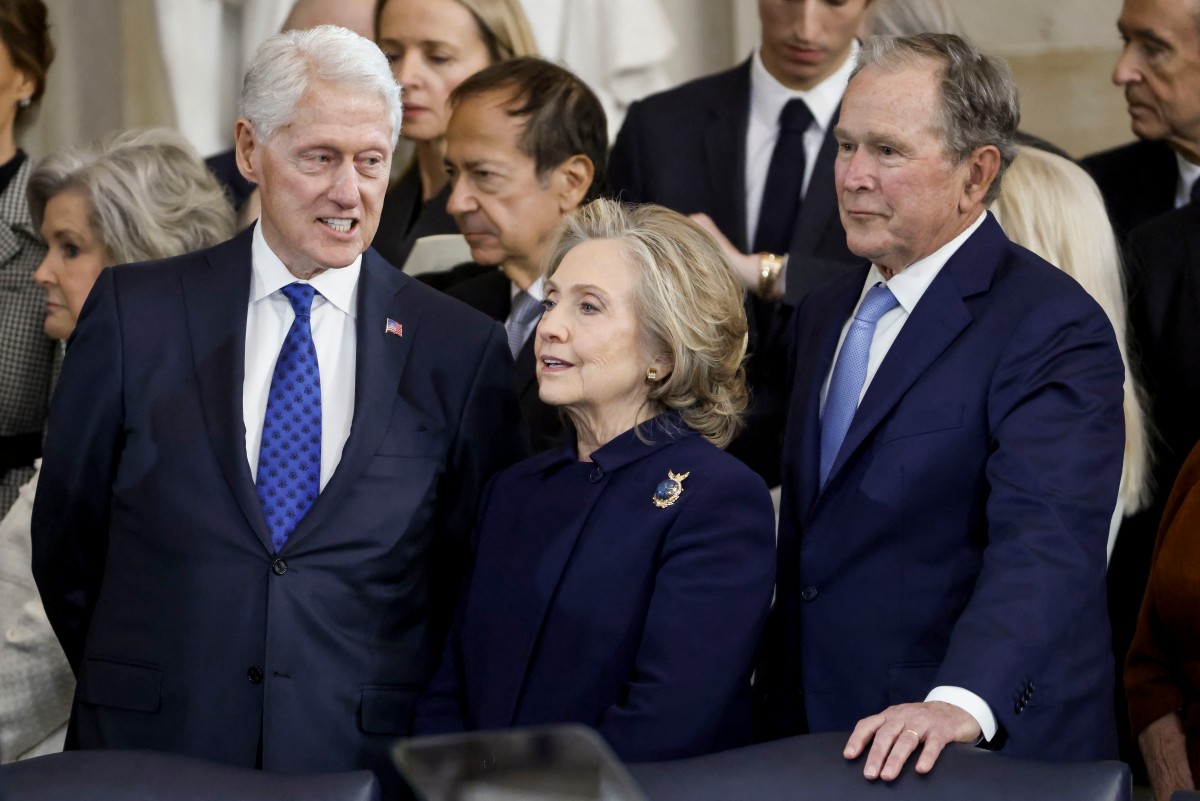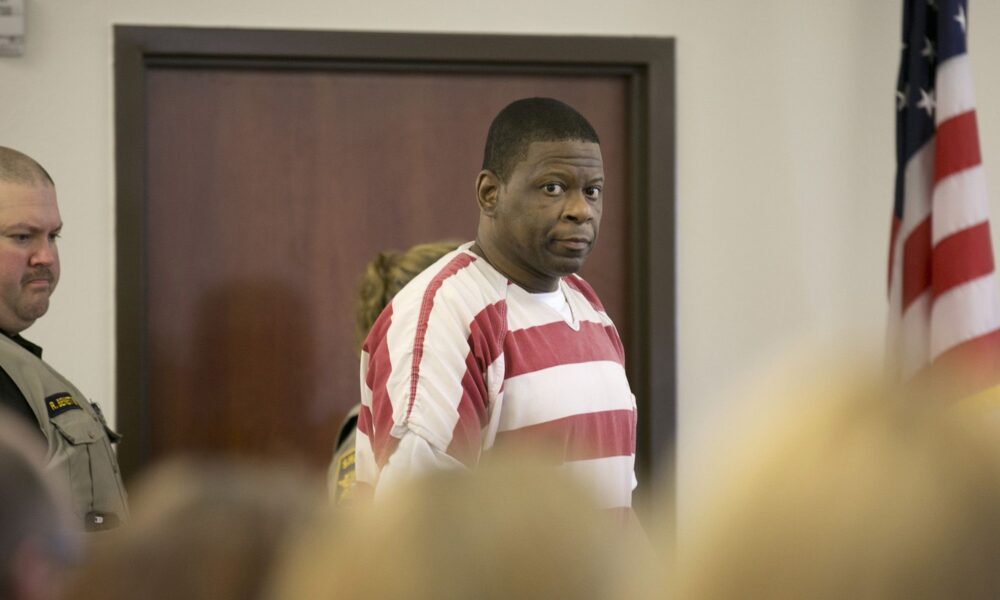International
US Supreme Court hears case of Texas man on death row

AFP | Charlotte Plantive
The US Supreme Court heard an appeal Tuesday from a Texas man on death row who maintains his innocence and whose case has drawn the attention of celebrities, lawmakers and millions of Americans.
The court did not address the merits of Rodney Reed’s case, but debated a narrow technical issue, relating to delays in criminal proceedings.
Its decision, expected before June 30, will however have a direct impact on the future of the 54-year-old Texan by authorizing the reopening of his case or, on the contrary, his execution by lethal injection.
Reed, an African-American man, was convicted by an all-white jury in 1998 of the rape and murder of Stacey Stites, a 19-year-old white woman.
Traces of his sperm were found on the victim’s body, but Reed insists he is innocent of the 1996 murder and that he and Stites had a secret consensual relationship.
Reed’s supporters believe that evidence gathered after the trial points to another suspect, Stites’s fiance Jimmy Fennell, a disgraced police officer who later served a 10-year prison sentence for a kidnapping and rape committed while on duty.
A fellow inmate says Fennell confessed to him that he had killed Stites because she was sleeping with a Black man.
Fennell has denied any involvement in Stites’s murder, but police initially considered him a suspect.
Texas prosecutors claimed during Reed’s trial that he had sexually assaulted several other women before Stites’s murder.
His execution was stayed just five days before it was to be carried out in 2019 following a campaign that included reality star Kim Kardashian, the singers Rihanna and Beyonce, and Texas lawmakers including Republican Senator Ted Cruz.
Two petitions seeking to halt Reed’s execution that circulated on the internet drew more than 3.5 million signatures.
DNA testing of murder weapon
To prove his innocence, Reed asked the Texas authorities in 2014 to conduct new DNA analysis on the murder weapon, a belt that was used to strangle Stites.
His appeals for DNA testing were repeatedly denied by the Texas Court of Criminal Appeals, so Reed turned to the federal courts.
But they refused to intervene on the grounds the request came too late, after the two-year window allowed to challenge a state court ruling in federal court had closed.
The question before the Supreme Court is, when does the window open?
At the hearing, judges appointed by Democrats seemed to be leaning in his favor.
“Isn’t that the simplest thing just to say (that) the person isn’t harmed until the state process has come to an end and we know for a fact what the state judgment is?” asked justice Elena Kagan.
Conservative justices, who regularly denounce the delaying tactics of death row inmates, did not show their preference.
Judge Samuel Alito merely noted the issue is “case specific and really quite narrow.”
Supporters of Reed gathered in front of the Supreme Court with a large banner proclaiming “Rodney Reed is innocent!”
International
Federal Judge Blocks Trump Policy Allowing Deportations to Third Countries

A federal judge ruled on Wednesday that the policy of U.S. President Donald Trump’s administration allowing immigration authorities to deport foreign nationals to third countries without prior notice or the opportunity to object is unlawful. The decision marks another legal setback for the administration on immigration matters.
Judge Brian Murphy of the U.S. District Court for the District of Massachusetts struck down the regulation issued last year, which stated that Immigration and Customs Enforcement (ICE) was not required to notify migrants if they were to be sent to countries other than the one listed in their removal order, provided that receiving nations offered assurances they would not face persecution or torture.
Murphy ordered the measure vacated but granted a 15-day delay before the ruling takes effect, giving the Trump administration time to file an appeal.
In his decision, the judge concluded that the policy violates federal immigration law and migrants’ due process rights. He also questioned the lack of transparency surrounding the alleged assurances provided by receiving countries, stating that “no one really knows anything about these supposed ‘assurances.’” He added, “It is not right, and it is not lawful.”
The ruling follows several legal disputes involving deportations to third countries. Last year, the executive branch deported more than 200 Salvadorans to a maximum-security prison in El Salvador, invoking an old wartime law. The White House also held talks with Costa Rica, Panama, and Rwanda about receiving migrants who are not citizens of those countries.
In May, the same judge determined that the government violated a court order when it attempted to remove a group of immigrants with criminal records to South Sudan without prior notice or an opportunity to raise claims of fear of persecution.
Although President Donald Trump took the case to the U.S. Supreme Court, which temporarily allowed the deportations to resume while a final decision was pending, the White House is expected to again appeal to higher courts to overturn this latest judicial ruling.
International
Cocaine Production Surges 34% in 2023 as Market Expands into Africa and Asia

The global cocaine market is the fastest-growing among all illicit drugs worldwide, the International Narcotics Control Board (INCB) warned on Thursday in its annual report presented in Vienna.
The body attributes this expansion to the sustained rise in production in South America — particularly in Colombia — as well as increasing demand in emerging regions such as Africa and Asia.
According to the report, global cocaine production surpassed 3,700 metric tons in 2023, marking a 34% increase compared to 2022. This growth is largely driven by the expansion of illicit coca cultivation in Colombia and the greater production capacity of clandestine laboratories.
The INCB noted that the market has not only grown in volume but has also diversified and become more globalized. While Europe and North America remain the primary destinations, trafficking routes now reach “all regions of the world,” including Africa — traditionally considered a transit zone — and Asia, where the presence of cocaine was previously marginal.
In Western and Central Europe, for the fifth consecutive year, seizures in 2023 exceeded those in North America, consolidating the region as the leading destination market. Between January 2019 and June 2024, more than 1,826 metric tons of drugs bound for European ports were seized, of which 82% was cocaine, equivalent to 1,487 metric tons.
The report also highlights that seizures in Africa rose by 48% in 2023 compared to 2022, reflecting the expansion of the market on the continent. Globally, the number of cocaine users increased from 17 million in 2013 to 25 million in 2023.
International
Clinton Accuses Republican Committee of Using Epstein Case to Shield Trump

Former U.S. Secretary of State and former First Lady Hillary Clinton denied on Thursday before a congressional committee that she had ever met convicted sex offender Jeffrey Epstein in person or had any knowledge of the crimes he committed.
Clinton testified behind closed doors from New York before the House Oversight Committee. The wife of former President Bill Clinton — who is scheduled to testify on Friday — accused the Republican-controlled committee of summoning her in order to “distract attention” and “cover up” the activities of President Donald Trump, who had past ties to Epstein.
“I do not recall ever meeting Mr. Epstein. I never flew on his plane nor visited his island, his homes, or his offices. I have nothing further to add,” she stated.
The former Secretary of State emphasized that she “had no idea about the criminal activities” of the financier, who died in prison in 2019. “Like any decent person, I was horrified when I learned of his crimes,” she said.
Clinton described the Epstein case as “a tragedy” and “a scandal” that deserves “a thorough investigation,” but criticized the committee for failing to summon what she called the truly relevant individuals.
“Instead, you have asked me to testify, knowing that I have no knowledge that would serve your investigation, with the purpose of distracting from President Trump’s activities and shielding him despite the legitimate demand for answers,” she said.
The questioning, conducted behind closed doors in Chappaqua, New York — where the Clintons reside — took place one day before former President Bill Clinton was scheduled to appear at the same location.
Although the Clintons initially declined to testify before Congress, the threat of being held in contempt ultimately led the former presidential couple to agree to appear and explain their relationship with Epstein.
-

 International1 day ago
International1 day agoFamily of “El Mencho” Seeks Return of Body After Deadly Military Operation
-

 International1 day ago
International1 day agoLarry Summers Steps Down from Harvard Role Amid Epstein Controversy
-

 International4 days ago
International4 days agoNinth Victim Recovered After Deadliest U.S. Avalanche in Decades
-

 International3 days ago
International3 days agoOver 40 Million Affected by Major Snowstorm in Northeastern U.S.
-

 International1 day ago
International1 day agoIran’s President Optimistic Ahead of Geneva Nuclear Talks with U.S.
-

 International1 day ago
International1 day agoStephen Hawking Photo Appears in Newly Released Epstein Documents
-

 International1 day ago
International1 day agoBill Gates Admits “Serious Mistake” Over Epstein Ties
-

 International3 days ago
International3 days agoNine People Killed in Two Armed Attacks in Manabí, Ecuador
-

 International2 hours ago
International2 hours agoCocaine Production Surges 34% in 2023 as Market Expands into Africa and Asia
-

 International2 hours ago
International2 hours agoClinton Accuses Republican Committee of Using Epstein Case to Shield Trump
-

 International2 hours ago
International2 hours agoFederal Judge Blocks Trump Policy Allowing Deportations to Third Countries






























